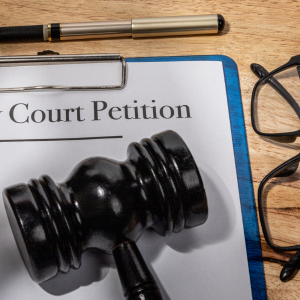
The convoluted probate procedure in Georgia can be hard to understand, especially when it comes to questions about residing in a probated home. Homeowners and beneficiaries who want this procedure to proceed smoothly need to know the rules and laws that govern it. Can you live in a house in Georgia while it is going through probate? This guide goes into a lot of information about that subject, detailing the state’s probate rules and the rights and responsibilities of everyone who is dealing with an inherited home or settling an inheritance. If you know what you can and can’t do, it can make a difficult transfer a lot easier, whether you’re the executor or the beneficiary.
Key Highlights
- You need to know how Georgia’s probate process works to make sure that the estate administration proceeds smoothly and follows all the regulations and laws.
- Fights between family members and unexpected bills or taxes are regular concerns that often need professional aid to fix.
- You might be permitted to reside in a probate home, but you need the court’s or executor’s approval and to follow all the rules.
- During probate, you must keep paying your mortgage, taxes, and insurance to keep the value of the home.
- Probate lawyers and digital estate tools are two examples of options that can help you manage your estate and make sure you obey Georgia law.
Learning how probate works in Georgia
The probate process in Georgia is the legal way to deliver a dead person’s property to their heirs or other people they choose to receive it. It can be tricky because there are a lot of legal requirements and strict deadlines to meet. Executors and heirs have to do some things, such file papers in court, pay off debts, and split up property. If you know these rules inside and out and get the right legal aid, it can make a big difference.
You need to know about every phase of the probate process if you are in control of property in a Georgia estate. With the correct planning and help from a good probate lawyer, the process can go smoothly. You could even be able to stay in the house while the probate process is going on in some cases.
Key Steps in the Georgia Probate Process

The official commencement of the probate process is when someone files a petition with the probate court in the county where the deceased person lived. The court’s first step is to make sure the will is real (if there is one) and to choose an executor or administrator to handle the estate. This person has a number of responsibilities, like identifying and analyzing assets, paying off debts and taxes, and finally delivering the rest of the property to the heirs.
The executor must tell the estate’s creditors that they have been chosen and provide them a deadline for filing claims. Before property is given to beneficiaries, any real debts are paid off with estate money. Georgia’s probate courts need a lot of openness, therefore it’s very important for the executor to preserve thorough records of every legal filing and financial transaction.
If you work with a probate lawyer that has been around for a while, the procedure will go more easily and you will avoid making costly mistakes. Can the Seller Back Out of a Contract in Georgia? is also a key question many clients ask during probate-related property sales, and an experienced lawyer can guide you through these scenarios. Lawyers may check that all of the paperwork is in conformity with state standards, which makes it less likely that there will be delays or problems later on.
Common Problems with Probate in Georgia
Even with careful planning, probate almost never goes perfectly. One of the most common concerns is family disagreements, especially when individuals are upset or have different opinions about what to do when someone dies. If siblings or other beneficiaries don’t agree, the process can take longer or even stop. Executors often have to act as a go-between for family members while they execute their legal duties.
Another common difficulty is getting invoices that you weren’t expecting. Having debts, unpaid taxes, or liens on property can make things a lot harder. To protect the estate from losing money or going into trouble, executors need to uncover and fix these problems as soon as possible.
Government errors can also lead to unnecessary complications during the process. Missing documents, inaccurate property values, or late filings can cause significant probate delays. By hiring a probate lawyer, you can ensure compliance with Georgia’s specific filing requirements and prevent many of these issues before they arise — helping you sell your house fast in Georgia and move forward with confidence.
Probate Rules for Living in a Home
One of the most common questions during probate in Georgia is whether someone can reside in the house while the estate is being settled. The answer depends on a few variables, like the deceased person’s will, the executor’s approval, and sometimes the court’s authorization. If you don’t do things the correct way, residing in a probate home could get you in trouble with the law. So, it’s really important to know the regulations before you move in.
This part talks about the rules for living in a house that is being probated and the costs of keeping the house in good shape during the process.
Legal Effects of Living in the Property
This is what the succession court in Georgia does with things that belong to an estate until the estate is closed for good. This means that without the right permission, no one can sell, rent, or live in the house.
The executor (or personal representative) normally doesn’t have a lot of control over the property. During probate, the executor must give permission for a family member or heir to live in the house. In some cases, the court must additionally issue permission. If someone resides in a property without authorization, it could generate conflicts between heirs or lead to the executor or the court taking legal action.
Before moving into a house that is in probate, it’s always a good idea to consult to a probate lawyer to make sure the deal is legal in your state. It’s crucial to stay in touch with the executor so that the person living there and the estate don’t run into any legal trouble.
It’s important to remember that the house is technically part of the estate until probate is over, even if you can live there. You don’t own the house just because you live there, and the person who lives there must observe any rules set by the court or executor.
Things to worry about money-wise while you keep the house
You have to pay for items if you reside in a probate home. Someone needs to make sure that costs that come up every month, such mortgage payments, property taxes, insurance, and utilities, are paid on time. This could be an heir, executor, or other family member. If you don’t meet these commitments, you could lose your home, get fined, or see the value of your property plummet.
The executor normally pays for these things using money from the estate, although sometimes the people who live there agree to pay for them directly. Written agreements and clear communication can help you avoid conflicts and ill sentiments in the future.
It’s also a good idea to keep track of all payments and maintenance expenditures. These papers will help you with the final accounting for the estate, and they might stop fights about how the money was spent. Executors should always contact to a probate lawyer to make sure that all of their money decisions are in line with Georgia’s probate laws.
How to Deal with Real Estate During Probate
Managing an estate can be hard, but dealing with real estate during probate is one of the worst parts. When people decide whether to sell or keep a house, they usually think about both their feelings and their money. Executors have to find a balance between what the estate requires, like paying off debts, and what family members want, like keeping the property.
If executors grasp Georgia’s real estate rules during probate, they can make good, defensible choices that protect everyone’s interests.
Deciding whether to keep or sell the house
When considering whether to sell or maintain a probate property in Georgia, there are a few crucial considerations to keep in mind. The estate’s money, the will’s rules, and the heirs’ wishes are all examples of this. If the estate needs money to pay taxes or settle debts, selling the property may be the only way to receive it. If the estate is doing well financially, the heirs may choose to maintain the property and share ownership or use it as an investment.
Before making any decisions, the executor should talk to a probate lawyer to make sure that everything they do is legal in Georgia. If a transaction needs court approval, the lawyer can explain how to achieve it. They can also help settle any conflicts that could come up amongst beneficiaries.
Executors should also consider the ongoing costs of maintaining the property, such as repairs, insurance, and property taxes. In some cases, the expense of keeping the house may outweigh its sentimental value. It’s important to be open and honest with all beneficiaries to prevent misunderstandings and preserve family harmony by clearly explaining the reasons behind the final decision.
If you decide that selling is the best option, we buy houses in Richmond, providing a quick and hassle-free way to settle the estate and move forward.
How property in probate influences family ties

One of the most unpleasant parts of probate is dealing with the family home. For many families, a home is a location where they have shared experiences and emotional ties, so deciding what to do with it is quite personal. Sadly, these feelings can make heirs disagree and fight with each other.
Most of the time, executors are in the center of these disputes. Being honest, open, and empathetic can help keep fights from starting. Family meetings, whether in person or online, provide everyone a chance to say what they think and learn about the legal and financial issues that affect the process.
Mediation can also help when people are really upset. A neutral mediator or lawyer can help keep the talks on track and focused on finding a solution that works for everyone. Families may remember their loved one and prevent costly court battles by working together to find a solution.
How families work together in probate
- Set aside time each week for family meetings to talk about worries and news.
- If things grow too heated, you might want to hire a neutral mediator to aid with the talks.
- Everyone should agree on a strategy for the property’s future, whether that means selling it, renting it out, or keeping it in the family.
- Set a clear deadline for making decisions so that all heirs can voice their opinions before anything is done.
- Let family members who reside far away take part in critical talks by using online meeting tools.
- Write down an agreement that makes clear what each person is responsible for and what they expect.
- Acknowledge the emotional connections and provide individuals time to reflect and process their feelings.
- Families can work together to find a fair and respectful solution while lowering stress by combining structure with kindness.
How to Quickly Handle Georgia Probate
To handle probate in Georgia well, you need to be organized, patient, and know how the court works. Executors may make things run more smoothly by getting key papers available ahead of time, keeping lines of communication open, and contacting specialists for aid when they need it.
Here are some helpful recommendations for executors and beneficiaries to keep things moving.
Preparing Important Documents for Probate
Paperwork is the first step in every probate process. The executor must obtain all essential documents, commencing with the will, if available. The will tells the court how the deceased wanted their property to be split up. Georgia’s intestacy rules outline how property should be divided if there is no will.
The executor should also acquire the property titles, tax returns, insurance policies, loan paperwork, and bank statements. The probate lawyer and the court can use these records to find out how much the estate is worth and how much it owes.
Another important task is to make a detailed list of all of your assets, both real and personal. To make sure the value is right, the inventory should include estimates for the estate’s most valuable items. Executors need to find out who owns the property, deal with any liens, and make sure that all the titles are in order.
Good paperwork helps keep you out of trouble with the law and speeds up the process of getting your case cleared in court. Being proactive with paperwork is one of the best ways to speed up the probate process.
Help and Resources for Property in Court

Taking care of probate property doesn’t have to be complicated. There are a number of services that can help executors and families make the process smoother. The best initial step is usually to hire a probate lawyer. They can explain Georgia’s procedures, handle filings, and represent the estate in court if there are any complications.
You can also get helpful information from your local probate court on forms, deadlines, and fees. Some counties even offer public workshops or online tools for persons who are going through probate for the first time.
Executors can also look into estate management software to assist them stay on top of their duties, deadlines, and finances. These digital technologies can help heirs and experts talk to one other more easily.
Being open is still important all the time. Keeping heirs informed and keeping solid records will help minimize difficulties and confusion that could lead to legal trouble. If executors acquire good legal advice, use the tools that are available, and talk to each other honestly, they can accomplish their jobs well and with confidence.
In Georgia, navigating the probate process takes patience, organization, and a solid understanding of state law. While it’s possible to live in a property during probate, you must first obtain proper authorization and strictly follow all legal and financial guidelines. When executors and heirs are informed, transparent, and work with experienced professionals, the entire probate process is far more manageable and efficient.
If you’re facing this situation, consulting a qualified Georgia probate lawyer can provide clarity, reduce stress, and ensure every step aligns with your loved one’s wishes and state requirements. With the right guidance, you can protect your family’s best interests and move forward confidently.
At Yellow Card Properties, we buy houses for cash in any condition—making it easier for families to settle estates quickly and move on. Call us today to discuss your options and see how we can help simplify your probate property sale.
FAQs
Can you live in a house in Georgia while it is going through probate?
Yes, but only if the executor or the probate court agrees. If someone resides somewhere without authorization, it could lead to legal problems or disagreements between heirs.
What does it cost to keep a property that is in probate?
The occupant or executor must pay the mortgage, taxes, insurance, and utilities to keep the property safe and from losing value.
What is the first thing that happens in Georgia’s probate process?
The procedure of probate starts when someone files a petition with the probate court. The court then looks at the will (if there is one) and chooses an executor to manage the estate.
What kinds of complications can happen during probate?
The most common obstacles include family issues, debts that aren’t mentioned, and mistakes committed when submitting. They typically require aid from a lawyer to get better.
Why is it so important to receive legal help?
A probate lawyer with experience ensures sure that state rules are followed, assists with money and paperwork, and cuts down on the chances of costly legal disputes.
Helpful Georgia Blog Articles
- Navigating House Sales Before Divorce In Georgia
- Maximize Your Profit: Selling A House As-is In Georgia
- Effective Strategies For Selling A Hoarder House In Georgia
- How To Successfully Sell Your Home During Foreclosure In Georgia
- Strategies For Selling A House With Code Violations In Georgia
- How to Sell Your House Rent-to-Own in Georgia
- Capital Gains Tax After Selling a House in Georgia
- Can I Switch Real Estate Agents in Georgia?
- How To Sell A Condemned House in Georgia
- Can An HOA Foreclose On A House in Georgia
- For Sale By Owner Buyers Agent Commission in GA
- Can You Live In A House During Probate in GA
- Taxes When Selling An Inherited House in GA

